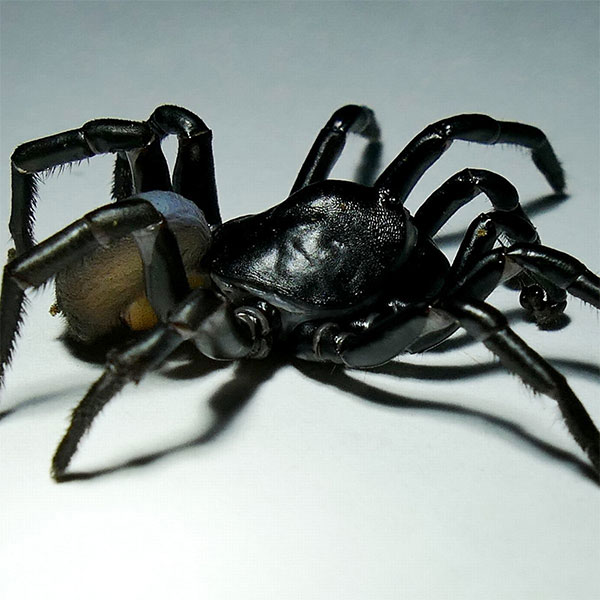Experts have discovered that the new species of tarantula spider with venom can live for decades in the Florida Zoo in the United States.
The new “spooky” spider is called the Pine Rockland flap spider, first discovered on the grounds of the Miami Zoo in 2012. However, the identity of this creature remains a mystery after more than two years of development. . the second specimen is recorded.
Now, after nearly a decade, it is confirmed that this spider never had an accurate description.
Zoo director Frank Ridgley said: “To me the new spiders are like the shiny little black tarantula. They are also ambush predators. Usually they build a net on their own under the soft sand. And the door is ajar. They spend their lives in a cave, waiting for their prey to pass through the trap door, then come out of the camouflage lair and grab them. “
Dr. Rebecca Godwin of the University of Piedmont in Georgia, USA, has identified the Pine Rockland shutter spider as a new species. He believes females have a lifespan of up to 20 years. However, males have a short lifespan. Male spiders leave the cave after about 7 years of maturity and die soon after.
Dr Rebecca Godwin said: “The individuals the zoo staff recently met are men. They have a ruffled shell on the front half and a silvery gray belly with a light spot on it. I see them. Pretty nice.”
There are also size differences between the female and the male. While the male stretched his legs was around 1 euro, the female was around 2-3 times the size.

As for the venom of the new spider, Frank Ridgley shared that a spider bite is as effective as a bee sting, but dangerous enough for the small invertebrates that fall prey to it.
“Spiders like these often rely on their size and strength to bring down their prey. The venom acts to break down and liquefy the prey, ”explains Frank Ridgley.
The natural rival of this spider is the bird of prey or wasps. The greatest danger this species faces is habitat loss.
Dr Ridgley said he was “both delighted and worried about the discovery”. As a scientist, who does not want to participate in the discovery of new species. It was like a dream come true.


